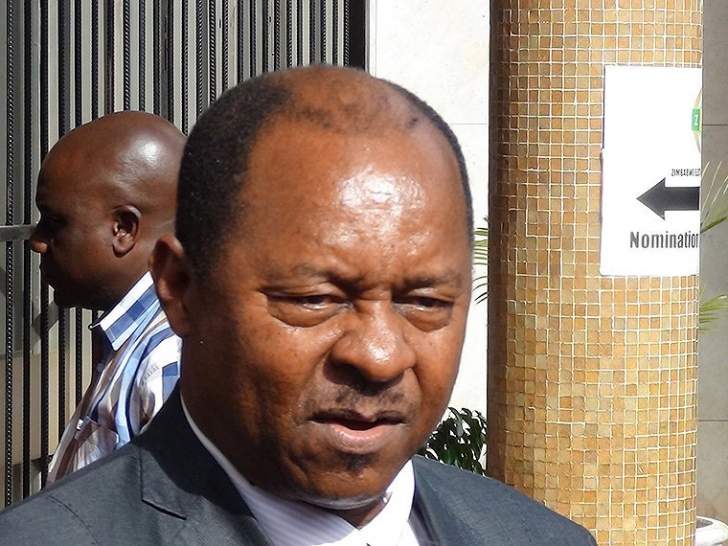
THE government is channelling more funds towards health personnel’s salaries and less towards drugs, leaving patients in a precarious position, Health minister Obadiah Moyo has said.
BY PRAISEMORE SITHOLE
Speaking at a reception after touring United Bulawayo Hospitals, Mpilo Central Hospital and Joshua Mqabuko Nkomo International Airport with Minister of State for Bulawayo Metropolitan Province, Judith Ncube, Health permanent secretary Agnes Mahomva and Global Fund executive director Peter Sands, Moyo said hyperinflation had crippled the country’s health delivery system.
“Currently, the country is going through a difficult economic period and, as such, has not been able to invest much in the health sector,” he said.
“Most of government investments have been channelled towards paying health workers. The recent upstage of inflation has resulted in the erosion of government efforts to retain health care workers resulting in challenges in rescuing the health workforce.
“Government will continue to review the situation in the country and remains grateful for the support from the Global Fund in reaction to our health workers. Government will continue to engage our partners to sustain the healthcare staff.”
Moyo said as government, they had failed to provide enough antiretroviral drugs to HIV patients.
“In the previous years prior to the economic challenges, the Government of Zimbabwe was contributing 25% of the country’s equipment needs to the Aids Levy. Currently, government has not been able to secure foreign currency to procure its share of ARVs. We are grateful that the Global Fund has been supportive with their ARVs,” he said.
- Chamisa under fire over US$120K donation
- Mavhunga puts DeMbare into Chibuku quarterfinals
- Pension funds bet on Cabora Bassa oilfields
- Councils defy govt fire tender directive
Keep Reading
“Since inception, the Global Fund has injected more than US$2 billion to support the country and its national response to the three diseases (HIV, malaria and tuberculosis (TB)) to strengthen the health system and more than US$1,5 billion has been allocated between 2010 and 2020.”
Moyo said Zimbabwe was burdened by HIV, malaria and TB, with 1,3 million people living with HIV, while there are nearly 35 000 new infections every year.
“The highest rate of new infections in Zimbabwe is among adolescent girls and young women. They are eight times likely to be infected more than adolescent boys and men of the same age. When you look at the underlying cause of that, is that some of them do not know about protecting themselves, reckless teenage pregnancy, some of them are related to early marriage and some of them are linked to gender-based violence,” Sands said at the function.
“The other population that is at risk, to be specific in terms of direct HIV infections, is the transgender, sexual workers and others.”
Sands, however, said despite the outbreak of COVID-19, it was important, particularly in Africa, not to underestimate the impact of TB, malaria and HIV.
“In about two months, COVID-19 has killed many people, but about 500 000 people have died from Aids, TB and malaria. It is important that we help pragmatically that Zimbabwe is not exposed to COVID-19, but we must also not take our eye off the ball of fighting Aids, TB and malaria,” he said.
Moyo said the Health ministry had directed that the Aids Levy be channelled to community programmes, supporting young girls and women to compliment support from the Global Fund.











